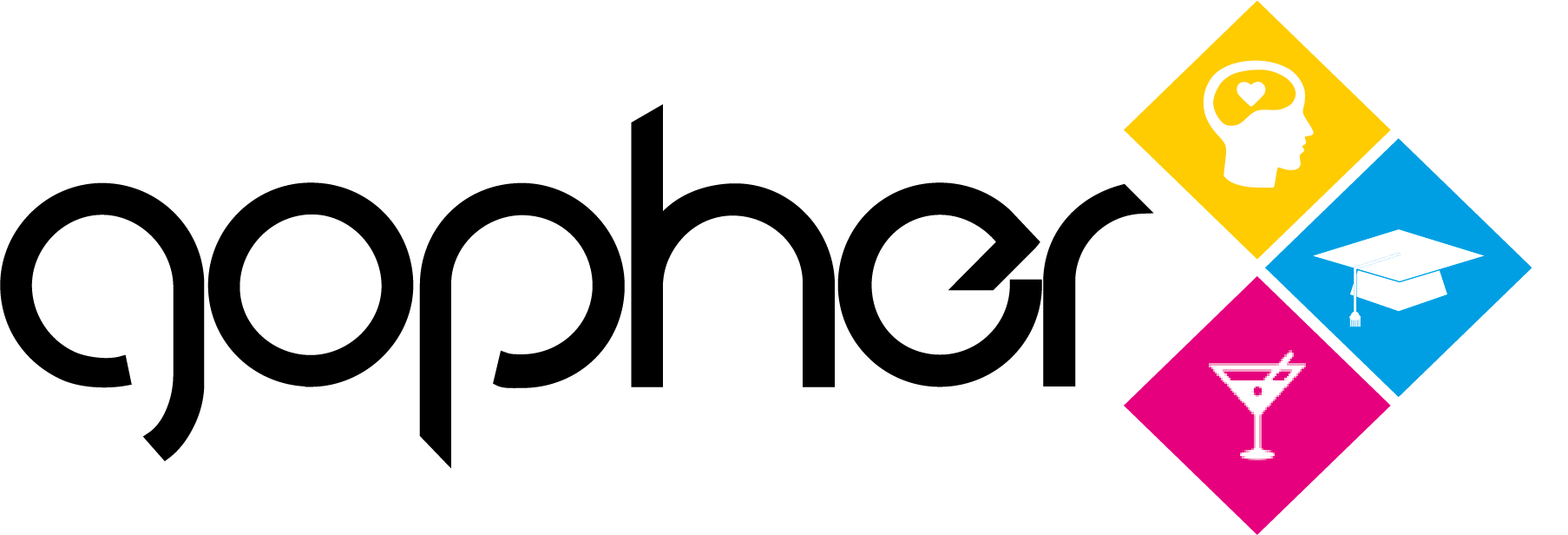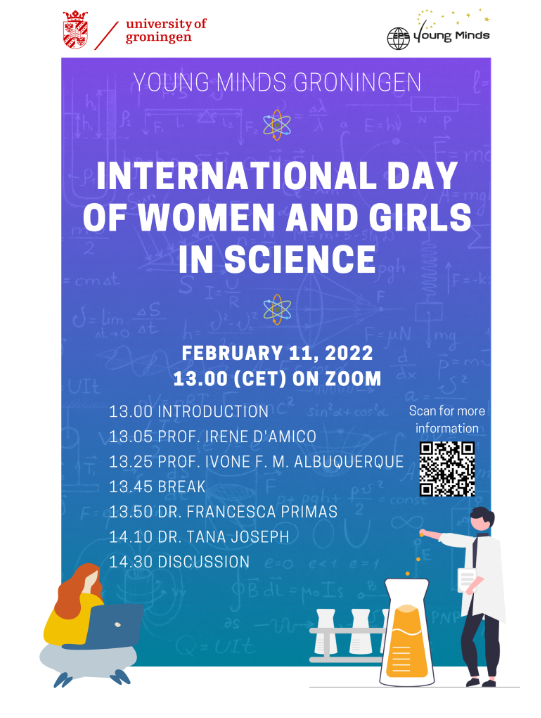EVENT - International Day of Women and Girls in Science
One step ahead in the mobilization of talents irrespective of their gender
EVENT DETAILS
Date: 11th February 2022 , International Day of Women and Girls in Science
Time: 13.00 - 15.00 CET
Location: Zoom YouTube
Organizer: Young Minds Project Groningen
YouTube live stream of the Zoom event will happen at this channel
To register and obtain connection details, please email: ymgroningen@gmail.com
“You cannot hope to build a better world without improving the individuals” – Marie Curie.
We live in a society where co-existence and mobilization of everyone’s individual knowledge and talent have become an inadvertent part of progress in any field, particularly science. Looking at a particular class of people only will create a vision in science that is not representative of the world. Therefore, by including women, we bring into science the full identity it deserves.
One of the biggest problems that need to be acknowledged is that achieving gender equality in science is a goal for women and every researcher in the community. When we initiate awareness on this issue, we are preaching to the choir most of the time. People who talk about the issues and people who attend and acknowledge them are women who are the victims due to this disparity in the field. However, the people who are in power have their eyes unopened to these issues and could use some insights on how to create an unbiased work culture in science.
AS EARLY-CAREER RESEARCHERS NOW IS OUR TIME TO DECIDE IF WE STILL WANT TO PREACH TO THE CHOIR OR SING FROM THE ROOFTOPS
The inequalities between men and women in science go way back in history. We came a long way. Nowadays, we certainly see an improvement in the number of women contributing towards research. But still, bias against female scientists exists. Hierarchical and sex segregation in work cultures and job opportunities are not helping either. Now that we discussed a lot about what’s going on in science, let’s talk about how to improve the current situation. This can be done by communicating your science and achievements, since that is as important as performing your research, especially in this changing world where people from disadvantaged groups want motivation. Studies show that you need a very large audience to turn inadvertent science in reach into outreach.
On the other hand, why should everyone (not just other women) attend a ‘women in science’-event? The low percentage of women in science leaves a void of role models for those aspiring to become one and attending these events remind you of the lives of these role models. There’s another very important and tangible reason to attend these events: there are easy ways we can counter these inadvertent gender biases and women in science talks and events help you explore them as a group.
Personally, I believe it’s worth the time and mental investment to explore these ideas together. A few years ago, I wasn’t comfortable trumpeting feminist issues. To be honest, I thought I never felt lonely from the lack of women in my academic work world. Given all that, it took me several years of educating myself to acknowledge the privileges I don’t have or the gender biases I have overlooked, to understand the importance of advocating these issues and to shift my thinking about attending these events.
DIVERSITY, IN ALL FORMS, WILL STRENGTHEN SCIENCE.
This is exactly the aim of the UNESCO and UN-WOMEN implemented International Day of Women and Girls in Science, celebrated on the 11 th of February every year. This day is an initiative to promote access to considering science as a future for women and girls across the world. By this day, The Groningen section of the Young Minds Project, an initiative by the European Physical Society (EPS - a non-profit organization), is organizing an online event with two gender equality talks focusing on girls and women in science and two scientific talks. The speakers, timings and other relevant information can be found in the flyer
Akshara Viswanathan, PhD student in Astronomy

